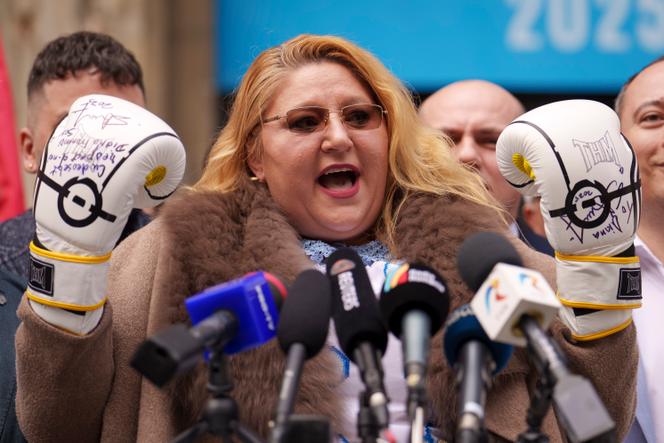


Romania's electoral commission on Saturday, March 15, excluded a far-right hopeful from May's presidential election, the second figure prevented from participating in the poll. It said in a statement that it had taken the "decision to reject the candidacy of Diana Sosoaca."
Earlier in March, the electoral bureau barred Calin Georgescu, an independent who polls predicted could have won around 40% of votes in the rerun election. The fierce EU and NATO critic shot to prominence last November when he unexpectedly topped a first round of presidential voting, before the constitutional court annulled the election after claims of Russian interference and a "massive" social media promotion in his favour.
The Constitutional Court had already banned Sosoaca, a 49-year-old member of the European Parliament known for her pro-Russia views, from standing last November. After the commission barred her from the race, she posted on Facebook that "I am proof that we do not live in a democracy" and that she would appeal.
On Thursday, she donned boxing gloves as she filed her candidacy, declaring herself ready to "fight the system once again" as she bids to, in Trumpian terms, "make Europe and Romania great again."
She has been accused of spreading pro-Kremlin propaganda and anti-Semitic views. Known for opposing anti-Covid measures during the pandemic, she was expelled from the chamber of the European Parliament in Strasbourg in July 2024 after loudly interrupting debates. Her small party, SOS Romania, won 24 seats after securing some 7% of votes in December legislative elections.
The electoral office did, meanwhile, validate the candidacy of Alliance for the Union of Romanians (AUR) party leader George Simion, the most prominent figure on the far right following Georgescu's exclusion. According to AUR, banning Sosoaca's candidacy "represents a further blow to Romanian democracy and a serious violation of fundamental rights and freedoms."
The eastern European state has been plunged into chaos since Georgescu's surprise emergence in November on the back of a huge TikTok social media campaign which was marred by suspicions of Russian interference. In a highly rare outcome, the November election was immediately cancelled while Georgescu was definitively excluded this week from the election, whose first round is scheduled for May 4.
